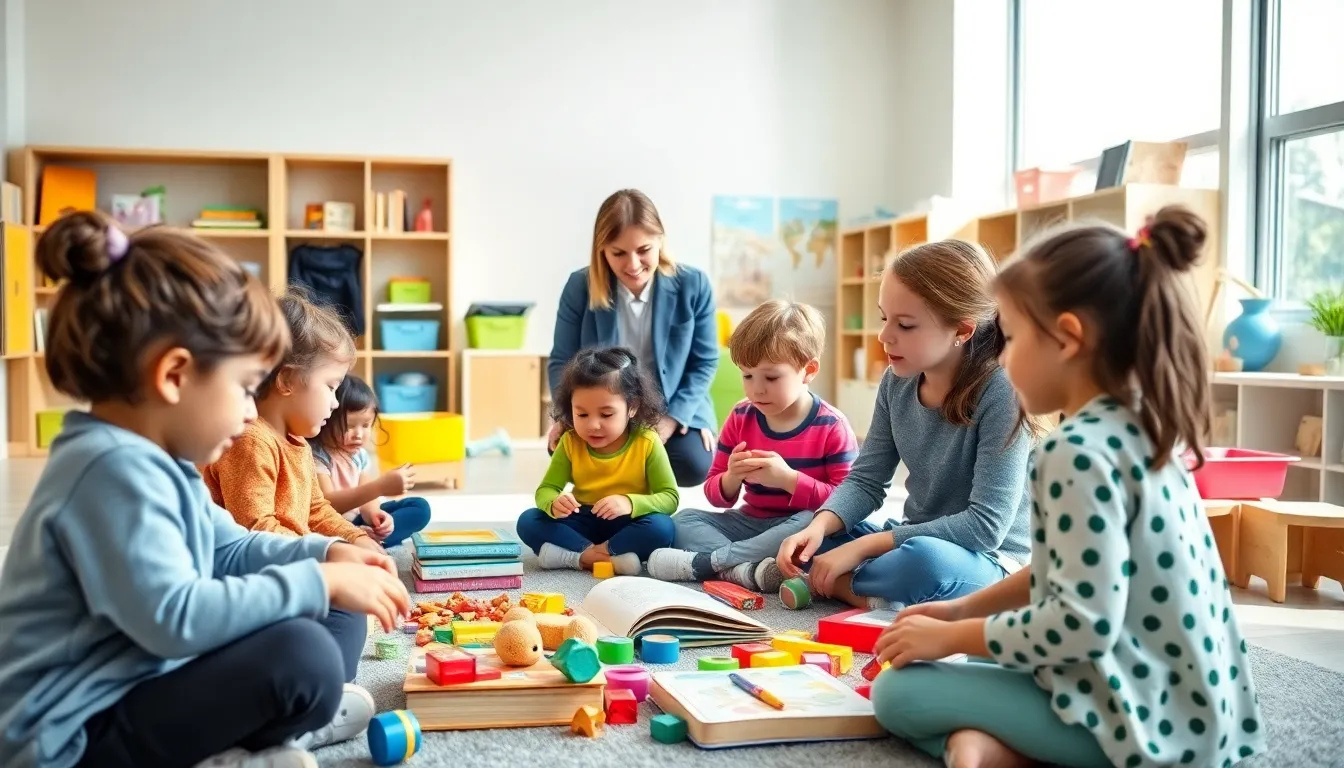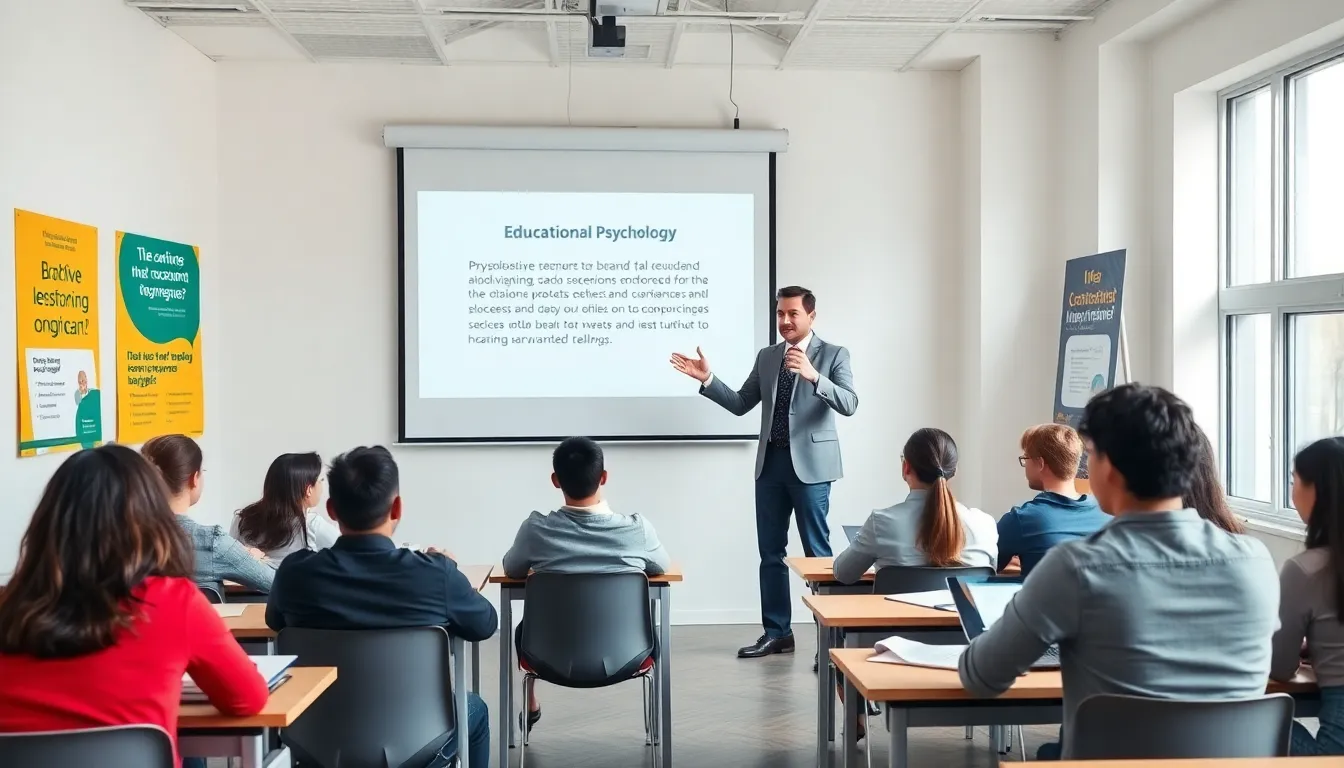Table of Contents
ToggleEver found yourself wondering what’s really going on in the heads of both teachers and students? In the realms of educational psychology and school psychology, that curiosity meets its match. Think of it as the ultimate showdown between two specialists in the intriguing realm of learning. Both aim to enhance educational experiences, but they travel different paths. So, why should you care? Understanding the nuances between these two fields can help clarify what professionals do behind the scenes, making education not just another subject, but an enlightening journey.
Understanding Educational Psychology

Educational psychology focuses on how individuals learn and the psychological processes involved in learning. It encompasses theoretical frameworks that explain how people acquire, process, and retain knowledge.
Key Theories and Principles in Educational Psychology
Several key theories underpin educational psychology, including cognitive, behavioral, and constructivist theories. Cognitive theories emphasize mental processes, arguing that understanding how information is processed can inform teaching methods. On the other hand, behavioral theories concentrate on observable behaviors and reinforcement mechanisms, while constructivist theories suggest learners construct their own understanding and knowledge through experiences.
Applications of Educational Psychology
In practice, educational psychologists work in various settings, such as universities, research institutions, and training organizations. They develop curricula and teaching methods based on evidence-based strategies, fostering a more effective learning environment. They also conduct research to explore different learning styles, motivation factors, and retention techniques, enabling educators to tailor their approaches to individual student needs.
Understanding School Psychology
School psychology is primarily concerned with the mental health and educational needs of children in educational settings. It emerges from the intersection of psychology and educational systems, focusing on both learning processes and the emotional and social aspects that affect a student’s ability to learn.
Roles and Responsibilities of School Psychologists
School psychologists play multiple roles, serving as counselors, advocates, and evaluators within schools. They assess students’ academic skills and emotional well-being, providing support for learning challenges, behavioral issues, and social interactions. Essentially, they are the bridge between the school environment and a child’s psychological condition, contributing to a holistic educational approach.
Assessment and Intervention Strategies in School Psychology
In their work, school psychologists use various assessment tools to identify learning disabilities, behavioral problems, and social challenges. Their interventions often include one-on-one counseling, development of Individualized Education Programs (IEPs), and collaboration with teachers and parents to create optimal learning conditions for students.
Comparative Analysis of Educational Psychology and School Psychology
While educational psychology and school psychology share common goals, they vary significantly in their focus and methodologies.
Similarities Between Educational and School Psychology
Both fields emphasize the importance of applying psychological principles to enhance learning outcomes. They aim to improve educational experiences for all students, relying on assessments and research-based strategies to guide their practices.
Differences Between Educational and School Psychology
The primary difference lies in their scope. Educational psychology tends to focus on broader educational systems and theories applicable in various settings, such as higher education and adult learning. Conversely, school psychology is specifically tailored to address the challenges faced by children in K-12 environments and often involves direct interaction with students.
Choosing a Career Path: Educational Vs School Psychology
When contemplating a career in either field, it’s essential to consider the unique contexts in which each operates.
Educational and School Psychology in Contemporary Contexts
Today, educational psychologists often find careers in research or policy, influencing systemic change in education. Meanwhile, school psychologists focus more on direct student interactions, navigating the complexities of school systems while addressing individual student needs. For those drawn to academic research and broad educational impacts, educational psychology may be the right fit. On the other hand, if one prefers working directly with children and enhancing their school experiences, school psychology stands out as an appealing choice.
Future Trends in Educational and School Psychology
As education continues to evolve, both educational and school psychology will adapt alongside it. The rise of technology in classrooms, increased awareness of mental health issues, and the push for inclusive education are just a few trends shaping these fields. Educational psychologists may focus more on how digital tools impact learning processes, while school psychologists might concentrate on mental health interventions within schools. Collaboration between these two areas will likely enhance educational outcomes, ensuring that students receive not only academic support but also the emotional tools they need to thrive.







